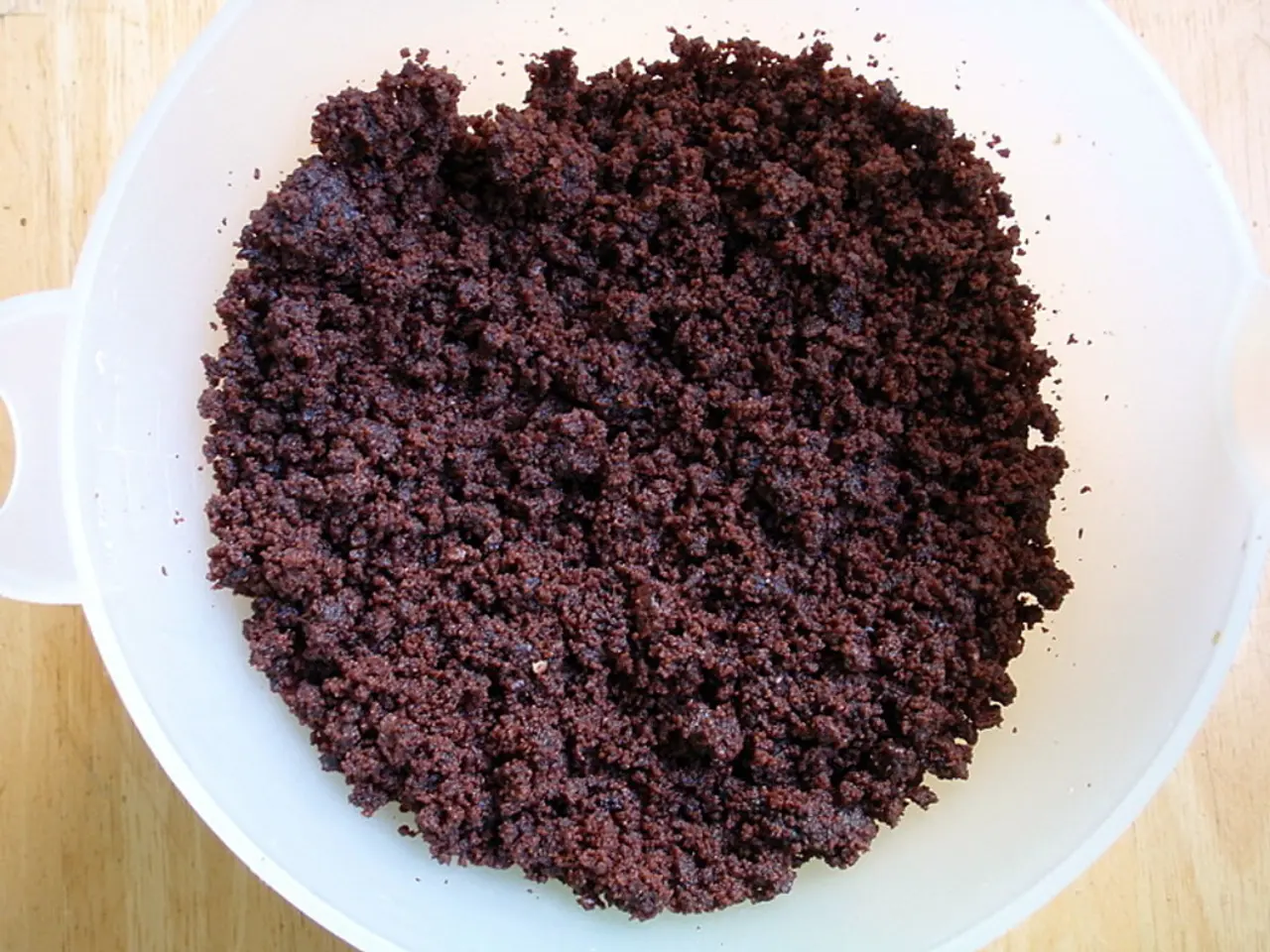Intestinal Bowel Syndrome-Diarrhea: Causes, indications, and remedies
Irritable Bowel Syndrome with diarrhea (IBS-D) is a common digestive disorder, characterised by frequent diarrhea as a main symptom. This article provides an overview of the potential causes, symptoms, and management strategies for IBS-D.
Causes of IBS-D
While the exact cause of IBS-D remains unknown, it is believed to be due to multiple factors. These may include dietary triggers, stress and emotional factors, hormonal changes, and gut-related physiological factors. Specific dietary triggers often comprise gas-producing foods, sugar substitutes like sorbitol, caffeine, alcohol, large meals, fatty foods, dairy products (due to lactose intolerance), gluten, and high-FODMAP foods (certain fruits, vegetables, and legumes). Stress and emotional factors can worsen symptoms, as IBS-D patients often report flare-ups during periods of anxiety or stress. Hormonal changes, especially in women, can also trigger symptoms around menstrual cycles.
On a physiological level, excess bile acids reaching the large intestine can induce the release of the hormone insulin-like peptide 5 (INSL5), which causes diarrhea; this mechanism may underpin about 40% of IBS-D cases and is a target for new treatments.
Symptoms of IBS-D
Symptoms of IBS-D may include frequent abdominal discomfort or pain, abdominal cramps that may improve with bowel movements, frequent or changed bowel movements, loose, watery stools, abdominal bloating, and mucus in stools. Additionally, symptoms that do not affect the gut may include issues with sexual function, irregular menstrual periods, urgent or increased need to urinate, and pain affecting other areas of the body.
Management Strategies for IBS-D
Effectively managing IBS-D involves a combination of dietary adjustments, stress reduction, and medical care personalised to the patient’s specific triggers and symptoms.
Dietary Modification
Identifying and limiting individual trigger foods is crucial. Keeping a food-symptom journal can help in this regard. Adopting a personalised diet with the help of a healthcare provider or dietitian often focuses on reducing caffeine, alcohol, fatty foods, artificial sweeteners, and high-FODMAP foods.
Stress Management
Stress and emotional factors can worsen IBS-D symptoms. Relaxation techniques, mindfulness, or other approaches can help reduce stress-related symptom exacerbation.
Medical Treatments
Consulting a healthcare provider for possible medications tailored to IBS-D symptoms is advisable. Emerging therapies targeting hormonal triggers such as INSL5 are under investigation.
Regular Monitoring
Tracking symptom patterns and triggers with medical support can help optimise management.
Other Management Approaches
The FODMAP diet reduces certain carbohydrates that may trigger gastrointestinal symptoms. Cognitive behavioral therapy, hypnosis, or relaxation training may be used to manage stress and anxiety related to IBS-D. Probiotics may help with IBS-D linked to a change in gut bacteria.
Diagnosis of IBS-D
To diagnose IBS-D, healthcare professionals may take a full medical history, assess any symptoms, carry out a physical exam, and use the Rome criteria. Other tests, such as blood tests or imaging scans, may be used to rule out other conditions that can cause similar symptoms.
When to Seek Medical Attention
Certain unusual symptoms, such as blood in stools, diarrhea at night, black tarry stools, fever or chills, night sweats, unintentional weight loss, change in typical IBS-D symptoms, or symptoms that begin after the age of 50, may require medical attention.
Conclusion
While there is currently no cure for IBS-D, treatments may help reduce symptoms and improve quality of life. A personalised approach, combining dietary adjustments, stress reduction, and medical care, is key to effective management of IBS-D.
- The often-unknown cause of IBS-D is largely attributed to multiple factors, including dietary triggers, stress, hormonal changes, and physiological factors in the gut.
- Specified dietary triggers may consist of gas-producing foods, sugar substitutes, caffeine, alcohol, large meals, dairy products, gluten, and high-FODMAP foods.
- Stress and emotional factors can sometimes worsen IBS-D symptoms, particularly during periods of anxiety or stress.
- The physiological process of excess bile acids reaching the large intestine may induce the release of INSL5, leading to diarrhea, and is believed to underpin about 40% of IBS-D cases.
- Symptoms of IBS-D can include frequent abdominal pain or discomfort, abdominal cramps, loose, watery stools, abdominal bloating, and mucus in stools.
- Effective IBS-D management incorporates dietary adjustments, stress reduction, and personalized medical care tailored to the patient’s specific triggers and symptoms.
- Using relaxation techniques, mindfulness, or other stress management approaches can help reduce stress-related symptom exacerbation.
- A FODMAP diet, cognitive behavioral therapy, hypnosis, relaxation training, and probiotics may be utilized for stress management and improving gut health related to IBS-D.
- Healthcare professionals may employ the Rome criteria, full medical history, symptom assessment, physical exam, and other tests to rule out other causes for similar symptoms when diagnosing IBS-D.
- Seek medical attention if experiencing unusual symptoms such as blood in stools, diarrhea at night, black tarry stools, fever or chills, night sweats, unintentional weight loss, a change in typical IBS-D symptoms, or symptoms beginning after the age of 50.
- IBS-D treatments aim to help reduce symptoms and improve quality of life, but currently, there is no cure for the condition.
- A personalized approach, combining dietary adjustments, stress reduction, and professional medical care, is crucial to the effective management of IBS-D.




